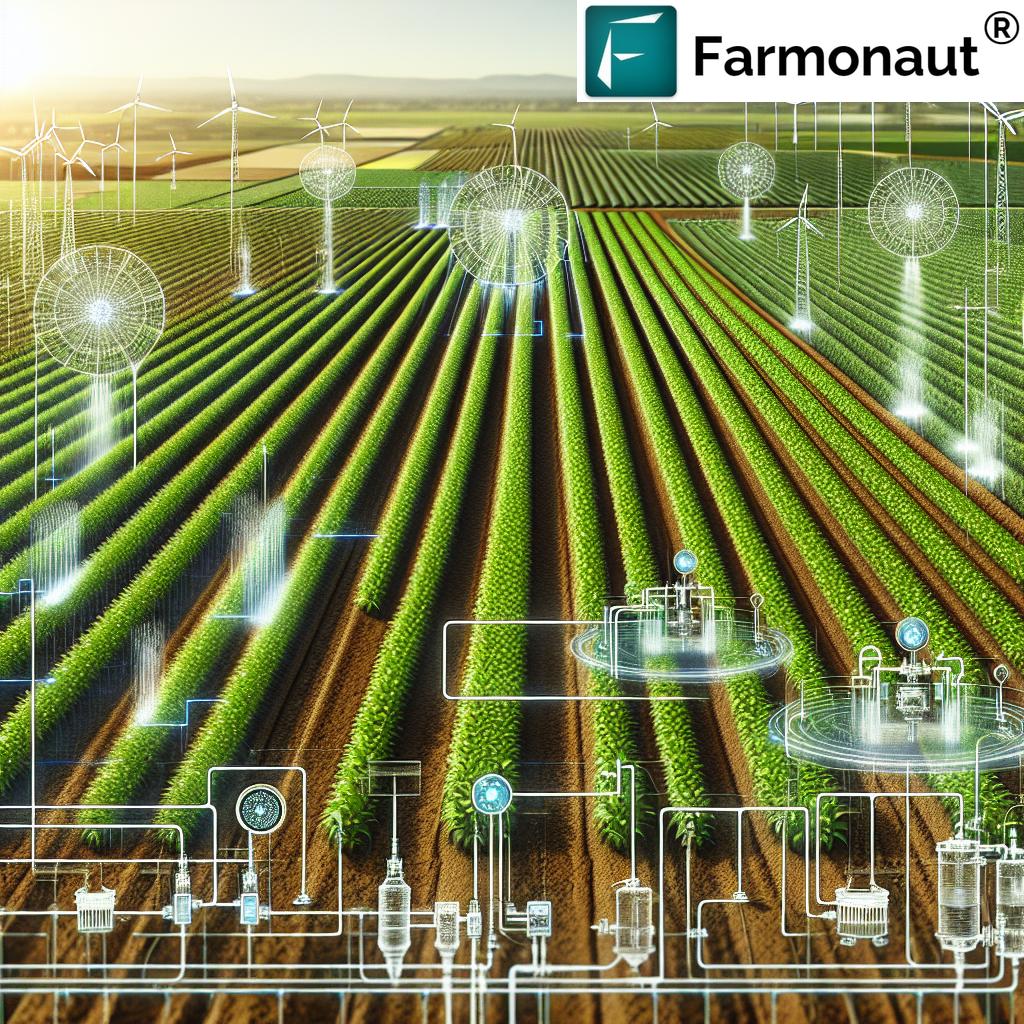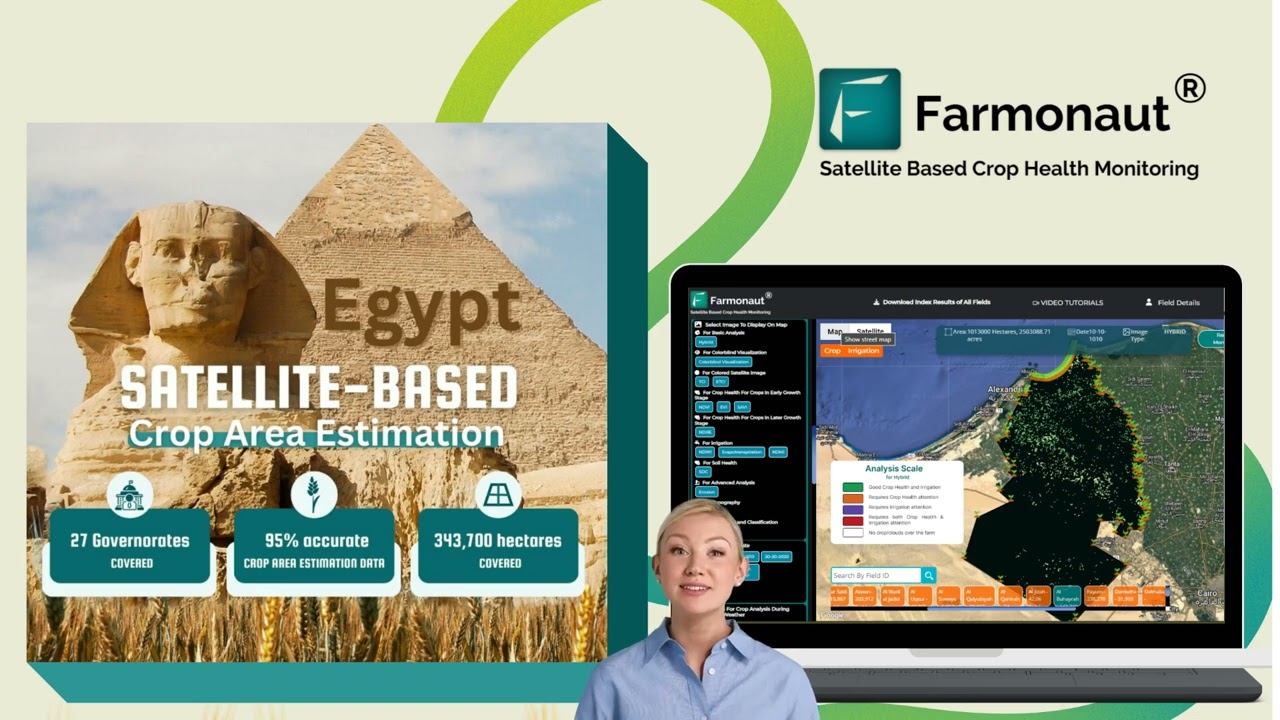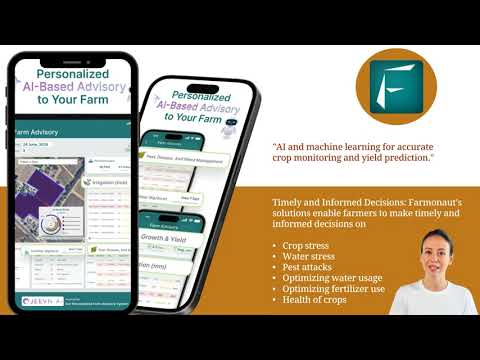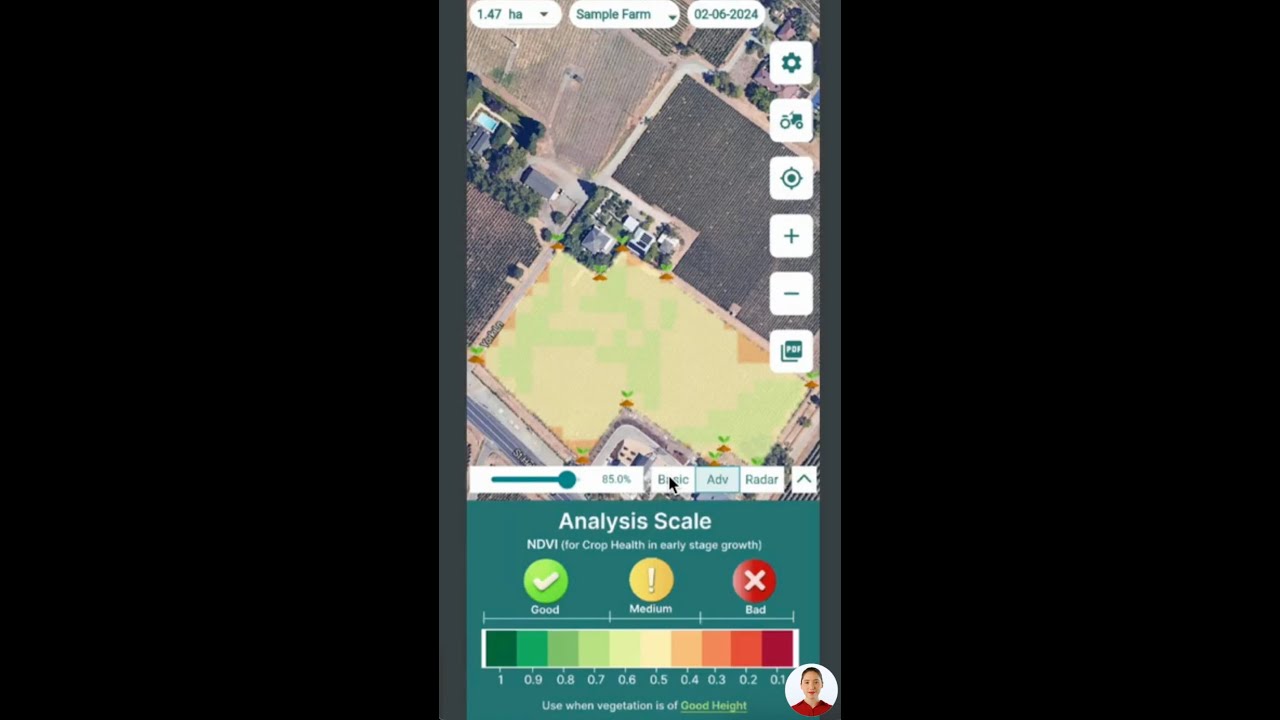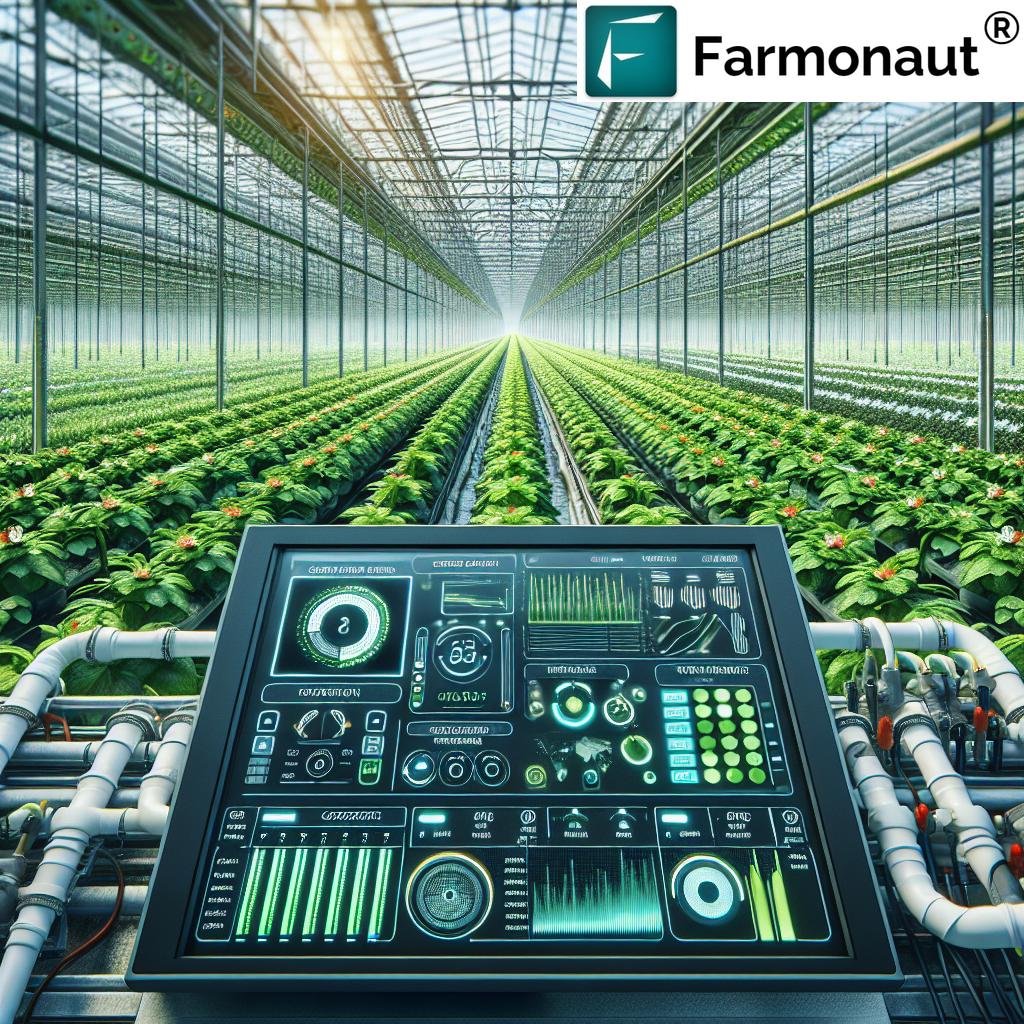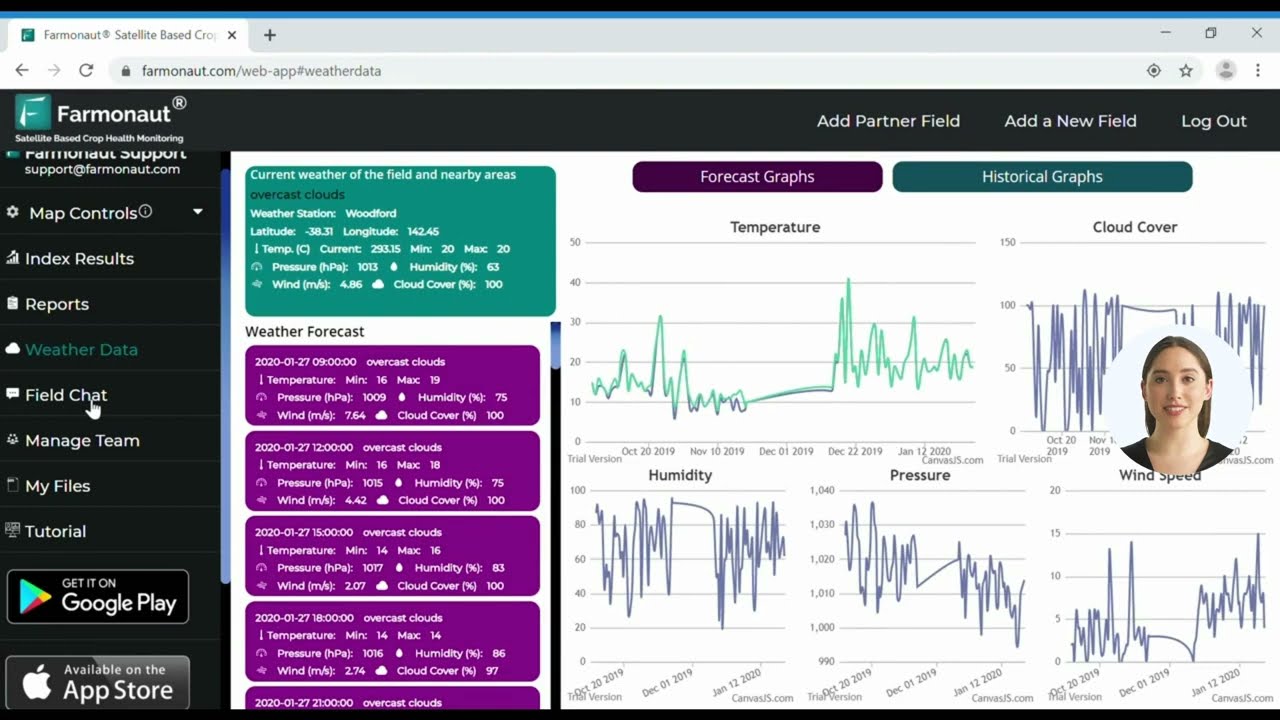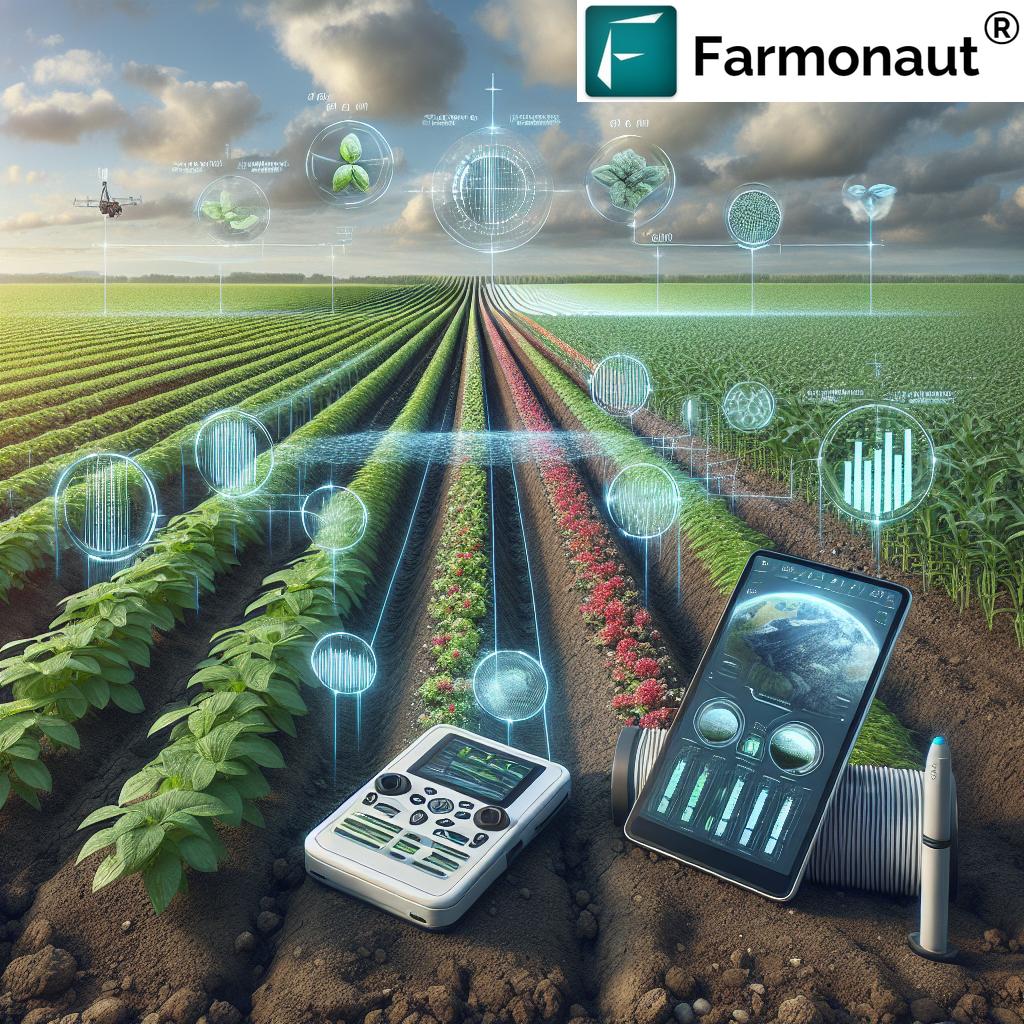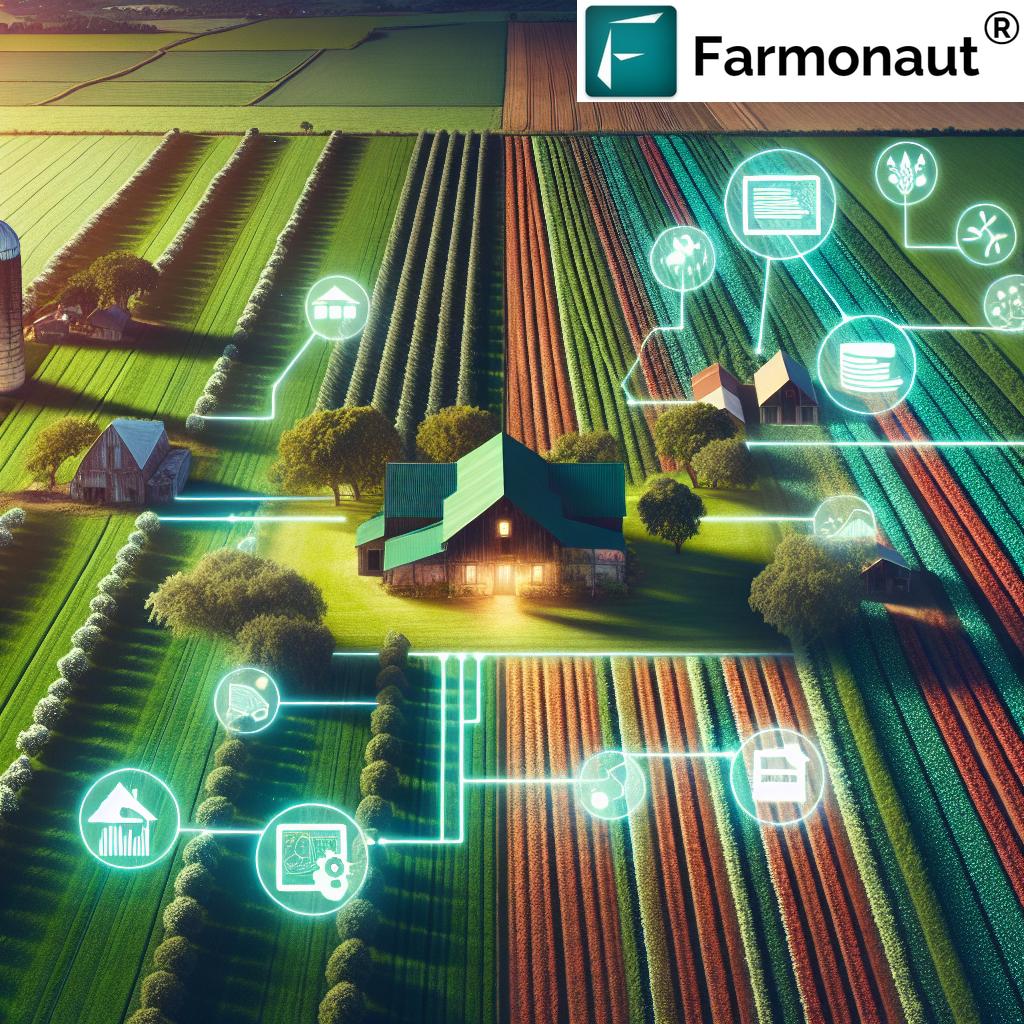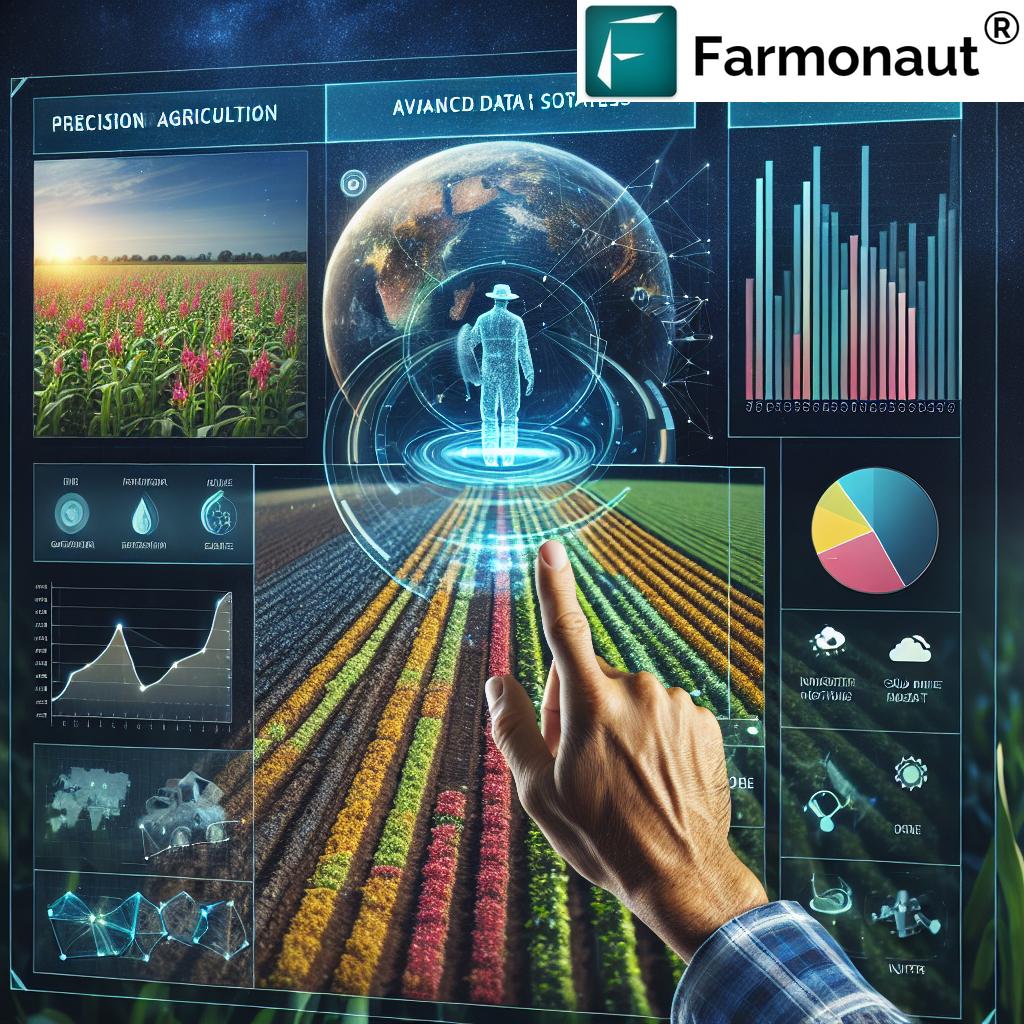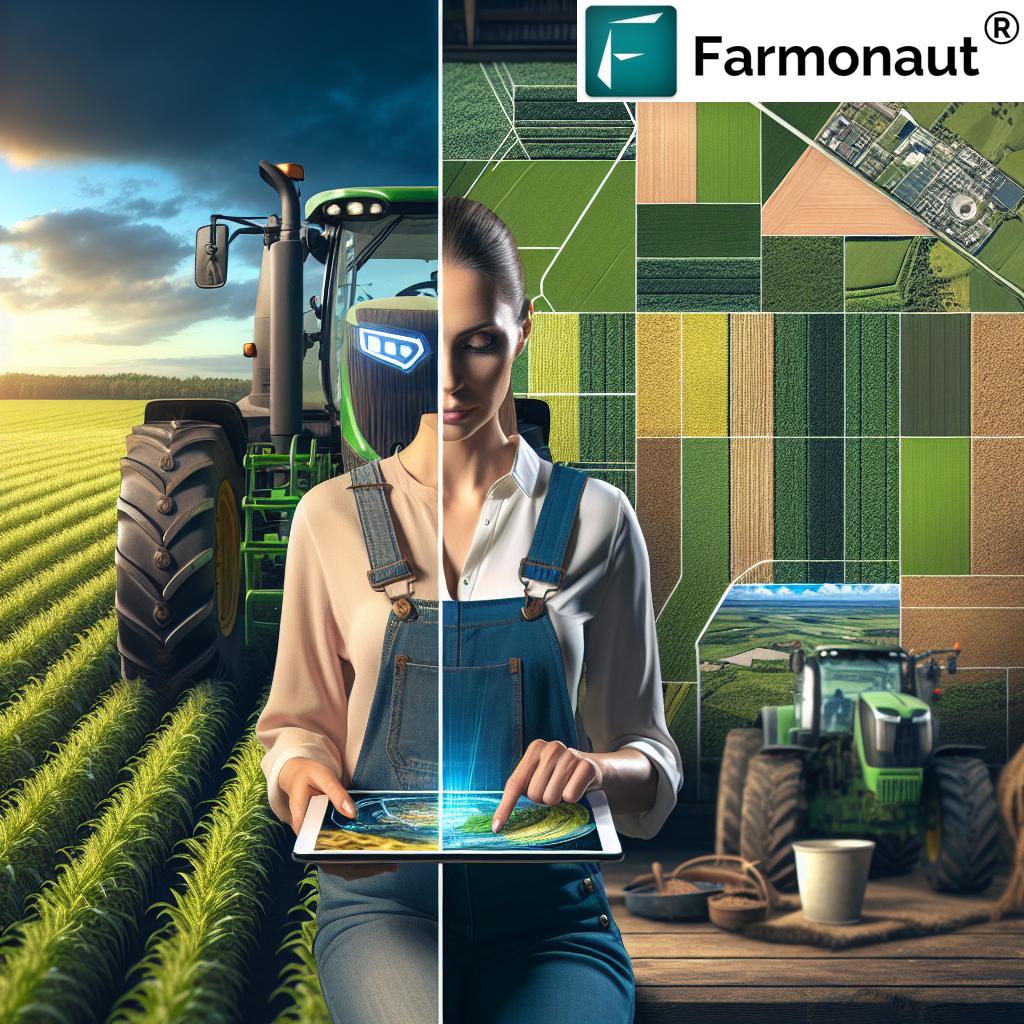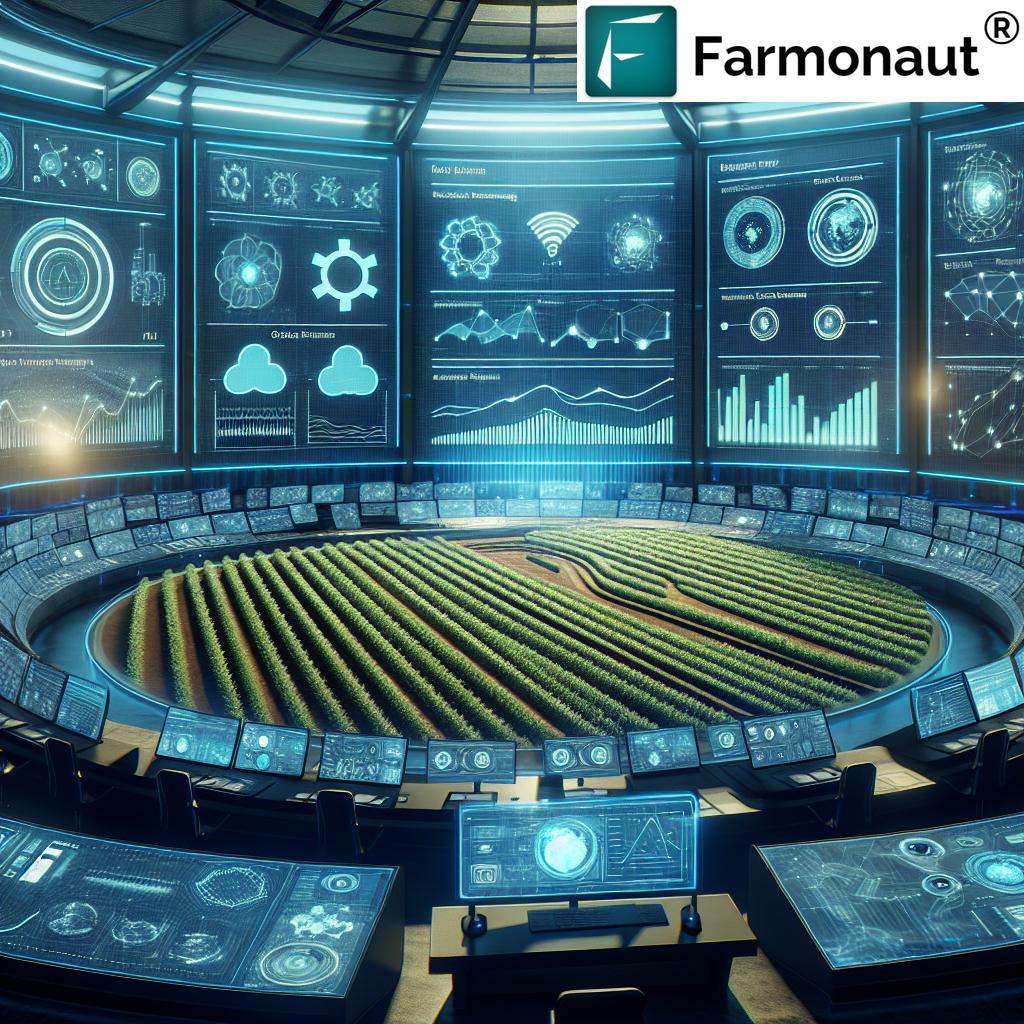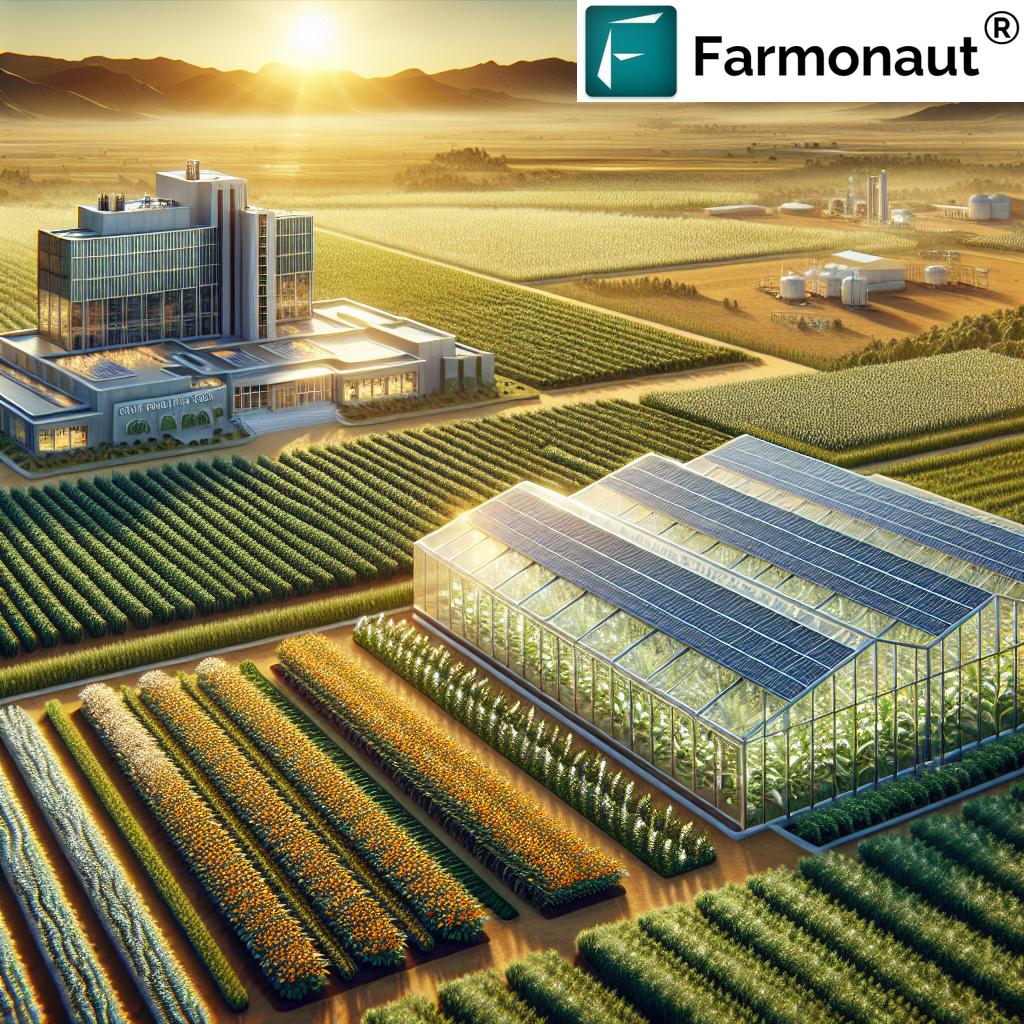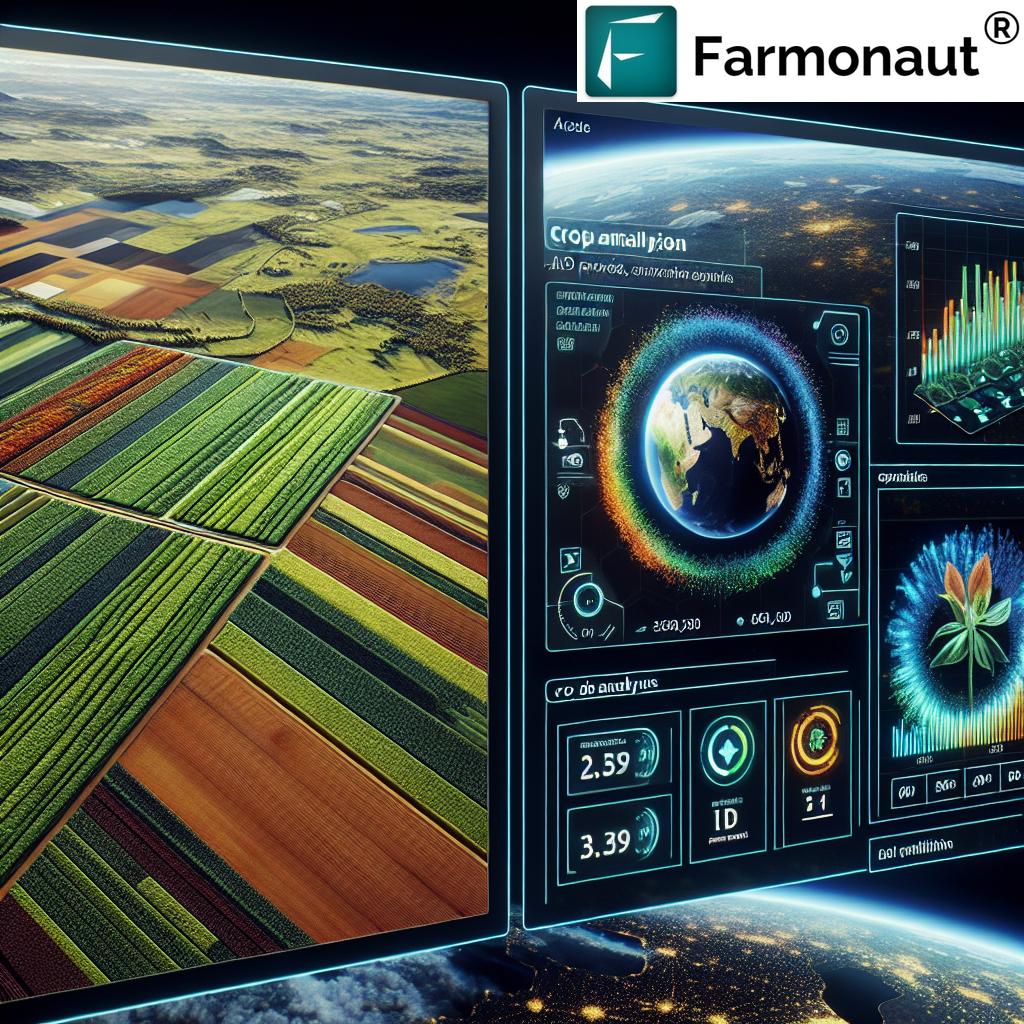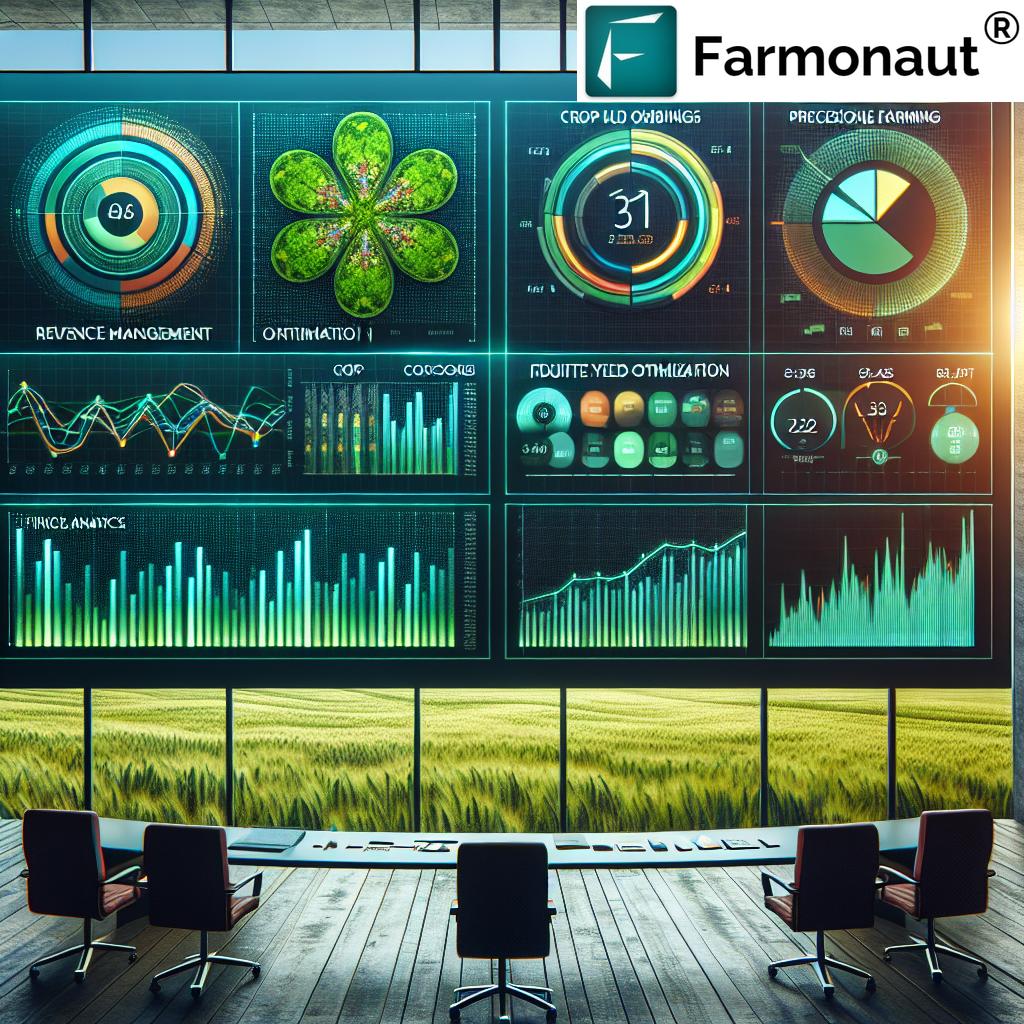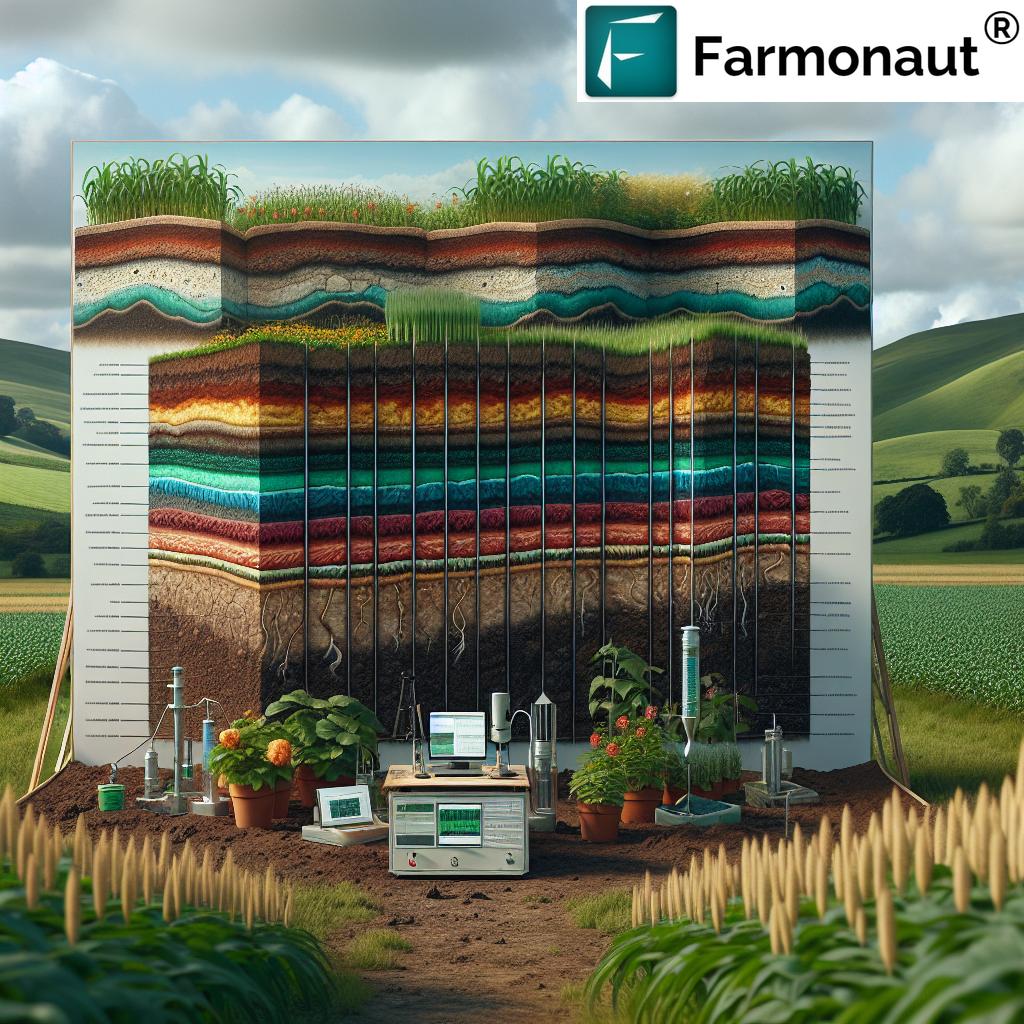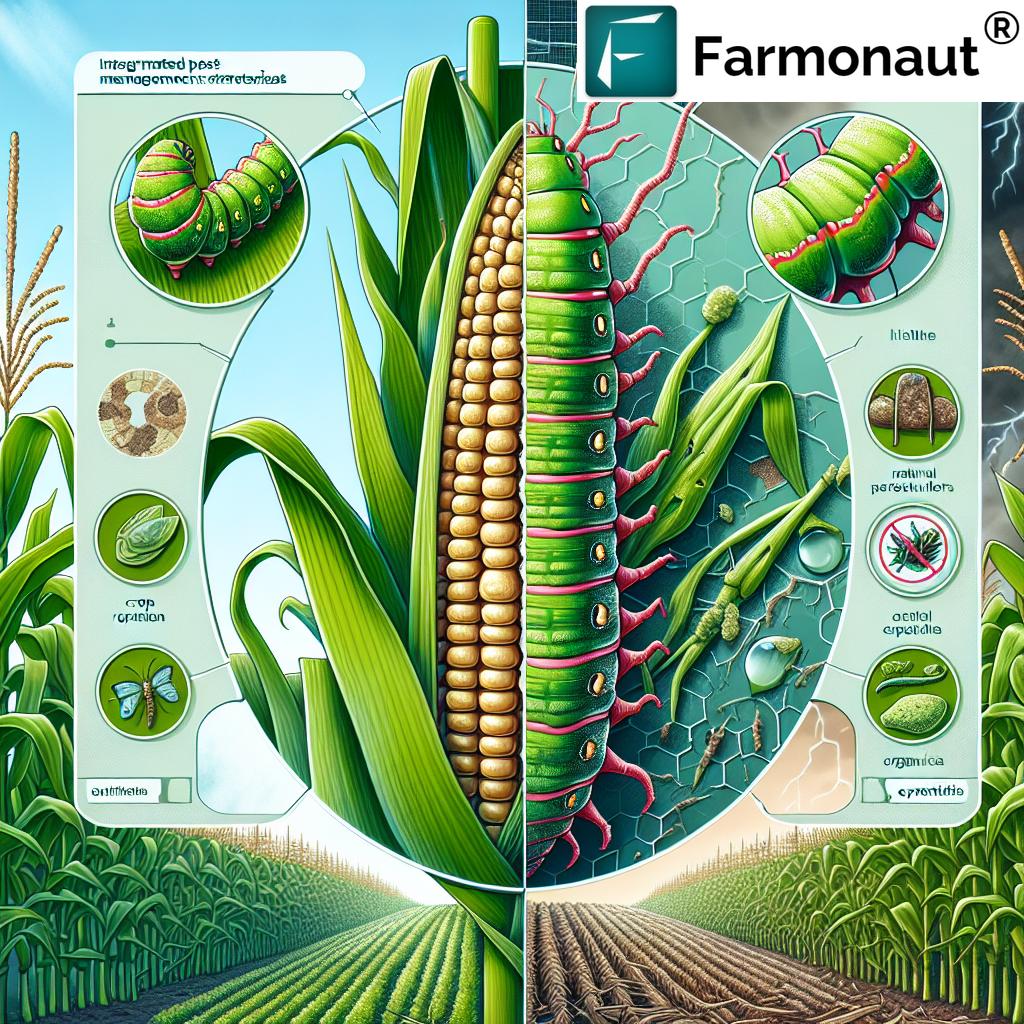7 Surprising Advantages of Smart Irrigation System – Optimize Water Usage & Improve Crop Yields
“Smart irrigation systems can reduce water usage by up to 50% compared to traditional methods.”
Table of Contents
- Introduction: Why Smart Irrigation Matters
- Understanding Smart Irrigation Systems
- Comparison Table: Conventional vs. Smart Irrigation Systems
- 1. Water Conservation in Agriculture
- 2. Improved Crop Yields
- 3. Cost Savings & Cost-Effective Irrigation Methods
- 4. Environmental Sustainability in Agriculture
- 5. Time & Labor Efficiency Through Automation
- 6. Precision Agriculture Technologies & Smart Irrigation Integration
- 7. Adaptability to Climate Change
- Integration with Advanced Technologies
- Farmonaut: Enabling Affordable Precision Agriculture & Smart Irrigation
- Try Advanced Farm Management Now
- Challenges & Considerations
- Frequently Asked Questions (FAQ)
- Conclusion: Embracing Smart Irrigation for Efficient Farm Management
Introduction: Why Smart Irrigation Matters
In the ever-evolving field of agriculture, the need to balance optimal crop yields with efficient water management and environmental sustainability has never been more critical. Traditional irrigation methods are increasingly proving inadequate for modern farmers facing water scarcity, rising costs, and the unpredictable impacts of climate change.
Smart irrigation systems and precision agriculture technologies have emerged as revolutionary solutions, integrating advanced sensors, real-time data, and automated controls for precise water application. These innovations go beyond just reducing water wastage; they help optimize resource usage, boost productivity, and promote sustainability across various farming operations.
As advocates and enablers of advanced agri-technologies, we at Farmonaut believe that understanding the full spectrum of benefits from smart irrigation is essential for every progressive stakeholder—from individual farmers to large agribusinesses. This comprehensive guide explores the 7 surprising advantages of adopting smart irrigation systems, backed by data, technology insights, and sustainable solutions improving agriculture worldwide.
Understanding Smart Irrigation Systems & Their Role in Modern Agriculture
What exactly are smart irrigation systems, and what makes them so transformative compared to traditional irrigation methods? In essence, these systems leverage automated irrigation controls, soil moisture sensors, weather forecasts, and remote monitoring capabilities to deliver exact amounts of water, tailored to the needs of specific crops and fields.
Unlike conventional setups, which often depend on set schedules or manual labor, smart irrigation is a hallmark of modern precision agriculture. This technology-driven approach brings together crucial data—such as soil moisture levels, crop type, weather patterns, and real-time plant health—as the foundation for efficient and environmentally-friendly farm management decisions.
By integrating these technologies with platforms like Farmonaut, farmers anywhere—from India to Africa to South America—can access affordable, actionable insights for higher productivity and sustainability. Whether you are a smallholder adopting your first sensor, or an agribusiness automating thousands of hectares, the impact of smart irrigation remains profound.
Comparison Table: Conventional vs. Smart Irrigation Systems
A direct comparison highlights the transformative benefits smart irrigation systems offer over conventional approaches in terms of water usage, crop yield, cost savings, and environmental impact.
| Feature/Parameter | Conventional Irrigation (Estimated Values) |
Smart Irrigation (Estimated Values) |
|---|---|---|
| Water Usage (liters/acre/year) |
600,000 – 900,000 | 300,000 – 450,000 |
| Crop Yield Increase (%) | Baseline | +10% to +20% |
| Energy Consumption (kWh/season) |
150-200 | 100-130 |
| Labor Requirement (hours/acre/season) |
30-40 | 10-15 |
| Cost Savings (%) | Baseline | Up to 30% |
| Environmental Impact (CO₂ emissions/season) |
Higher (due to energy and water usage) | Reduced |
| Remote Monitoring Availability | Rarely Available | Standard Feature |
1. Water Conservation in Agriculture: Combating Overwatering & Wastage
Water scarcity threatens millions of farmers worldwide, especially in arid regions and drought-prone geographies. The inefficiency of traditional irrigation methods often leads to significant water wastage through runoff, evaporation, and overwatering.
Smart irrigation systems directly address this issue by leveraging real-time data, local weather forecasts, and advanced soil moisture sensors to apply water only where—and when—it’s genuinely needed. Automation adjusts water delivery for specific plant and soil requirements, drastically reducing consumption.
- Water Savings Up to 50%: Studies indicate that by optimizing irrigation based on sensor data, water usage can be reduced by up to 50% (source).
- Efficient Distribution: Automated systems prevent runoff, wastage, and overwatering, further conserving valuable water resources.
- Targeted Irrigation: By applying water only to zones where crop roots need it—down to individual plants—efficiency multiplies.
Farmers in water-scarce regions benefit the most. By integrating platforms like Farmonaut’s precision crop health monitoring, actionable data ensures no drop is wasted.
2. Improved Crop Yields with Smart Irrigation Systems
The ultimate goal of any agri-technology is to uplift crop productivity and produce quality. Smart irrigation systems play a critical role in achieving optimal plant growth and maximizing harvests.
By continually monitoring soil moisture, crop canopy, and weather data, these systems ensure precise water delivery tailored to each crop’s needs. Over- or under-watering—common with conventional approaches—can cause yield reductions due to plant stress, root rot, or drought effects.
- Increased Yields: Precision agriculture technologies have shown yield increases of 10–20%, particularly when smart irrigation is paired with data-driven decision making (source).
- Uniform Growth: Managing the exact moisture levels at various crop stages guarantees uniformity in crop height, maturation, and size.
- Sensitive Crops: Fruits, vegetables, and nut trees especially respond to optimized, automated irrigation, boosting both yield and quality.
For large farms seeking streamlined management across diverse crops, Farmonaut’s Agro Admin App provides scalable solutions for precision irrigation, advanced monitoring, and tailored advisory—all in one platform.
“Precision agriculture technologies can increase crop yields by as much as 20% through optimized irrigation.”
3. Cost Savings & Cost-Effective Irrigation Methods
At first glance, smart irrigation technologies and automation in farming may seem like a hefty investment. However, analyzing the total cost of ownership—including reduced water usage, labor, and energy—shows these systems often pay for themselves within a few years.
- Lower Water Bills: Significant water conservation translates directly to savings, especially in regions where water is metered or scarce.
- Reduced Labor Costs: Automated scheduling means farms require fewer work hours for monitoring and adjusting irrigation, improving operational efficiency.
- Higher Profits: With yield increases of 10-20%, the revenue boost far outweighs initial costs, especially for premium produce.
- Long-Term Payoff: Reducing nutrient leaching and fertilizer waste saves input costs, while less energy for pumping water lowers power bills.
For those seeking sustainable ROI, Farmonaut’s data-driven solutions offer precise resource management at affordable rates. The API access (Farmonaut API; API Developer Docs) integrates advanced satellite data and weather monitoring into any existing irrigation system or app.
4. Environmental Sustainability in Agriculture
The agricultural sector faces immense pressure to reduce its environmental impact, particularly concerning water runoff, soil degradation, and greenhouse gas emissions. Smart irrigation systems provide several benefits for environmental sustainability in agriculture:
- Minimized Runoff and Erosion: By targeting water applications to the root zone, there is little to no runoff, which means less soil loss and nutrient leaching.
- Reduced Use of Fertilizers: Precise watering helps plants absorb nutrients efficiently, reducing chemical runoff into local ecosystems and protecting biodiversity.
- Lower Carbon Footprint: Energy-efficient pumps and reduced water consumption lower CO₂ emissions per season.
Discover Farmonaut’s Carbon Footprinting Tools for agri-operations tracking environmental impact in real-time. - Biodiversity Preservation: Efficient resource management means fewer disturbances to local habitats and wildlife.
Adopting these technologies is now a core part of sustainable farming practices, helping both growers and communities thrive.
5. Time & Labor Efficiency Through Smart Irrigation Automation
Automation is at the heart of smart irrigation systems. Traditional irrigation approaches require significant manual oversight and labor, especially for large tracts of agricultural land.
- Remote Monitoring & Control: Using mobile devices or desktop apps, farmers can access live data, make adjustments, and set watering schedules without ever stepping into the field.
- Centralized Management: Several fields and crop blocks can be managed from a single interface, perfect for fleet management and large-scale operations.
For more on logistics optimization, visit Fleet Management. - Labor Reduction: Reports indicate labor hours per acre can be cut by over 50% through advanced irrigation solutions.
- Automated Alerts: Sensors and automated controls alert users to issues (like leaks or soil dryness) instantly, reducing costly mistakes and plant stress.
Reducing manual workload frees time for farmers to focus on other vital aspects of farm management such as crop health, marketing, and strategic planning.
6. Precision Agriculture Technologies & Smart Irrigation Integration
The explosion of data-driven precision agriculture technologies has enabled smarter farming than ever before. Smart irrigation systems are a key component, integrating seamlessly with other technologies to enhance decision-making and productivity.
- Integration with Satellite Data: Platforms like Farmonaut utilize high-resolution satellite imagery for real-time crop health, soil moisture levels, and irrigation planning.
- AI-Driven Insights: Advanced systems use machine learning algorithms to recommend optimal watering schedules based on predicted plant requirements and weather patterns.
- Drones & IoT Sensors: Combine aerial views with ground-based soil sensors for hyper-local, actionable data—minimizing resource wastage.
- Secure Data & Traceability: Blockchain-based traceability (Farmonaut Traceability Solutions) verifies produce history, ensuring food safety and sustainable practices for companies and consumers alike.
By unifying technology and data, precision irrigation supports smarter, greener, and more profitable farming operations.
7. Adaptability to Climate Change
The unpredictable nature of modern climate change—from severe droughts to unexpected downpours—demands flexible, adaptive irrigation solutions that respond to real-time environmental shifts.
Smart irrigation systems are designed for responsiveness. Utilizing both forecast and historical weather data, automated systems import changes in temperature, humidity, and rainfall to determine optimal application amounts and times.
- Dynamic Scheduling: When drought or heat waves are predicted, plant water needs can be adjusted in advance to combat heat stress.
- Reduced Crop Risk: Early detection of anomalies helps farmers avoid overwatering or underwatering—both of which are increasingly common in a changing climate.
- Maximized Yield Stability: Maintaining steady irrigation despite weather extremes leads to consistent, dependable crop output.
Incorporating Farmonaut’s AI-based weather advisory and automated irrigation controls empowers every farmer to future-proof their operations—ensuring resilience no matter what the climate brings.
Integration with Advanced Technologies: Sensors, Mobile Apps, and More
Modern smart irrigation systems are not isolated gadgets—they are part of a larger, inter-connected digital farm management ecosystem. Their integration with other technologies delivers unparalleled insight, control, and flexibility.
- Weather Stations: Localized weather data improves accuracy of watering schedules and supports timely warnings (e.g., frost or drought risk).
- Soil Moisture Sensors: Real-time, field-specific measurements eliminate guesswork, enhancing plant health and water use efficiency.
- Cloud-Based Control: Data is stored and analyzed offsite, accessible on any device—ideal for multi-location farm enterprises.
- Mobile & Web Apps: Intuitive interfaces allow any farmer, regardless of scale or expertise, to benefit from the latest advances—a mission central to Farmonaut.
API access (Farmonaut API) ensures smooth integration for developers, agri-tech startups, and corporate clients seeking custom solutions.
For banks and financial institutions, reliable data from integrated smart irrigation and remote monitoring dramatically reduces fraud risks in crop insurance and credit distribution.
Explore Farmonaut’s Crop Loan and Insurance Verification Services to learn how technology enables transparency and access to finance for farmers.
Farmonaut: Enabling Affordable Precision Agriculture & Smart Irrigation Worldwide
At Farmonaut, we are committed to democratizing access to affordable, advanced agricultural management tools that make precision irrigation and data-driven farming accessible to all.
- Real-Time Crop and Soil Monitoring: Our satellite-based platform empowers farmers by providing instant insights into crop health, soil moisture, and more—crucial for optimizing irrigation and maximizing outputs.
- AI-Based Advisory: With Jeevn AI as your digital farming assistant, experience personalized, actionable recommendations for watering schedules, plant nutrition, and pest control.
- Carbon & Sustainability Tracking: Farmonaut offers real-time carbon footprint and resource-use tracking, supporting nature-positive, climate-resilient agriculture.
Learn how carbon footprinting helps farmers and agribusinesses comply with green standards and access climate financing
- Scalable Solutions: Serving everyone from smallholders to cooperatives to governments, our modular platform adapts as your business or farm grows.
- Mobile and Web Accessibility: Android, iOS, or browser—manage your farm data and irrigation from anywhere, anytime.
Ready to bring your smart irrigation and precision agriculture technologies into the future? Start with Farmonaut for unparalleled efficiency, savings, and environmental stewardship.
Interested in managing crop cycles, plantations, and forest agri-projects end-to-end? Discover how Farmonaut integrates crop advisory, remote sensing, and resource management in every agro-ecosystem.
Challenges & Considerations in Smart Irrigation Implementation
Despite the many advantages, adopting smart irrigation systems does pose some challenges that must be managed for long-term success:
- Initial Investment: Upfront costs may be substantial for smallholder farmers, although financing options and scalable plans (see Farmonaut subscription above) can lower barriers.
- Technical Skills: Training is required to interpret data, maintain sensors, and operate new systems.
- Maintenance: Sensors, pumps, and communication devices require periodic calibration and upkeep.
- Data Reliability: Inaccurate sensor or weather station readings can lead to suboptimal irrigation schedules; it’s essential to verify and regularly update information sources.
Farmonaut is committed to supporting users with training resources, responsive support, and continuous updates—making precision agriculture achievable for all.
Frequently Asked Questions (FAQ) – Smart Irrigation Systems
-
Q: What exactly is a smart irrigation system?
A: A smart irrigation system is an automated solution that uses sensors, weather forecasts, and real-time data to deliver precise amounts of water tailored to crop and soil needs, optimizing efficiency and sustainability. -
Q: Are smart irrigation systems suitable for small farms?
A: Yes! Many platforms like Farmonaut offer scalable packages, remote monitoring, and affordable tools that suit both smallholders and large operators. -
Q: How much water can be saved by using smart irrigation?
A: Studies show savings of up to 50% compared to traditional methods, especially in regions with water scarcity. -
Q: What kind of data do these systems use?
A: They utilize crop health metrics, soil moisture measurements, live weather updates, satellite imagery, and field sensor data to make timely, accurate irrigation decisions. -
Q: How does Farmonaut support smart irrigation and sustainability?
A: Farmonaut provides real-time satellite-based crop and soil monitoring, AI-powered advisory, blockchain-based traceability, resource management, and carbon footprint tracking to enable efficient and sustainable agriculture worldwide. -
Q: What support is available for users new to smart irrigation?
A: Platforms like Farmonaut offer user guides, tutorials, and responsive support to ensure a smooth transition to smart irrigation and precision farming.
Conclusion: Embracing Smart Irrigation for Efficient and Sustainable Farm Management
As we’ve covered, the advantages of smart irrigation systems—from water conservation, higher yields, and cost savings to environmental sustainability and resilience to climate change—make them the foundation of modern, efficient agriculture. By integrating sensors, real-time data, and automated controls, farmers can optimize water usage and propel their operations into a future defined by efficiency and sustainability.
At Farmonaut, our mission is to make these benefits accessible and practical for every farmer, cooperative, and agribusiness globally. Affordable, easy-to-integrate solutions powered by satellite, AI, and data analytics are transforming farm management, resource optimization, and environmental practices—one field at a time.
Ready to revolutionize your farm with smart irrigation systems and precision agriculture technologies? Explore Farmonaut’s advanced offerings today for a smarter, greener, and more productive tomorrow.
Build the future of farming with Farmonaut – for smarter irrigation, precise data, and sustainable agriculture.


